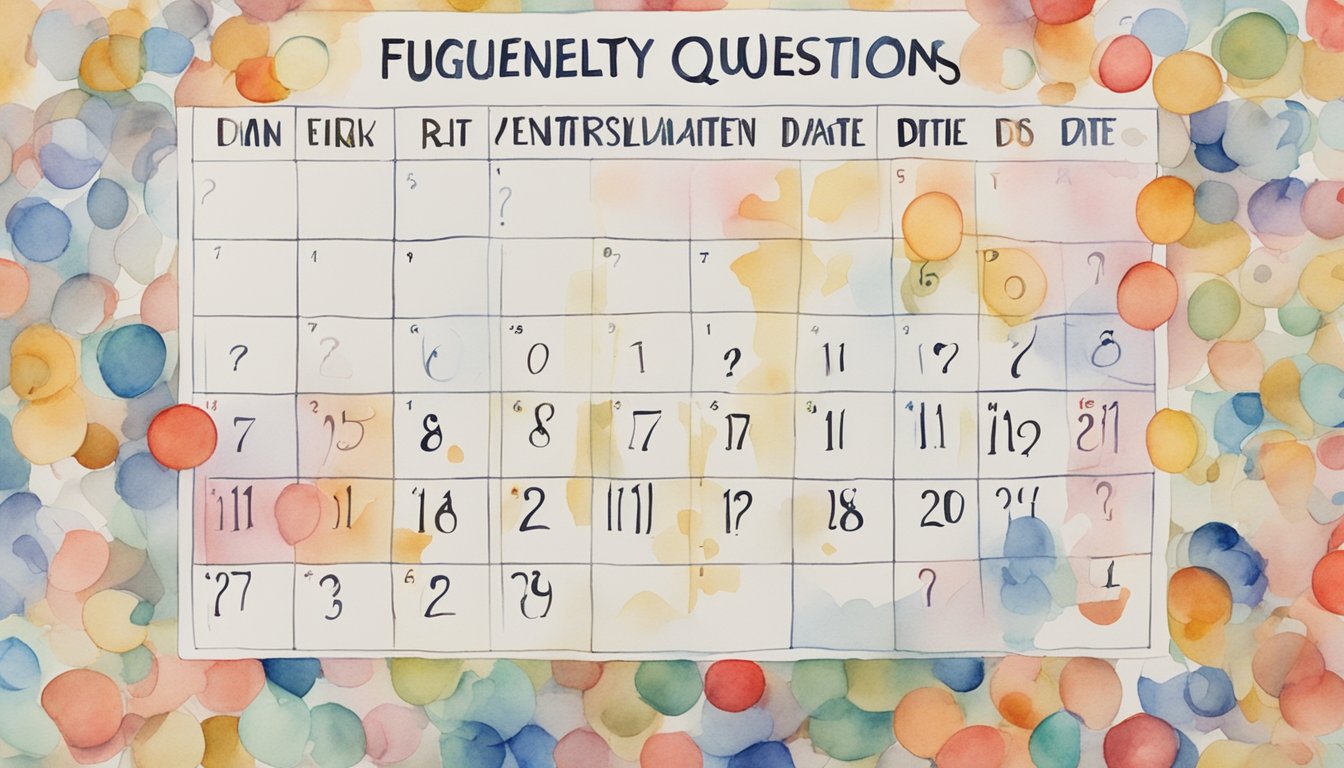What Does Expiration Date Mean
In the insurance industry, an expiration date refers to the last day your insurance policy is active.
After this date, your coverage ends unless you renew the policy.
Components of an Expiration Date:
- Policy Term: This is the duration for which your insurance coverage is valid, typically one year.
- Renewal Notice: Before your policy reaches its expiration date, you will receive a reminder to renew.
You must be aware that the expiration date is crucial for avoiding a lapse in coverage.
A lapse could leave you unprotected against potential risks.
Related Terms:
- Sell-By Date: Not commonly used in insurance, but refers to the date by which a product should be sold.
- Use-By Date: Similar to the expiration date in insurance, indicating when coverage or benefits will no longer be valid.
You may encounter terms like shelf life and food safety in other contexts, which indicate how long a product remains usable, similar to how coverage in an insurance policy has a set period of validity.
Important Points:
- Quality Assurance Date: Often confused with expiration date, it indicates the peak quality period, not the end of coverage.
- Federal Law: Governs the regulations on insurance policy periods and expiration.
- USDA: While it primarily deals with food safety, similar regulatory bodies oversee insurance industries to ensure compliance with proper date labeling and product dating.
Understanding your insurance policy’s expiration date helps maintain continuous protection and compliance with regulations, ensuring you are always covered for any eventualities.
Make sure to renew your policy before it expires to avoid gaps in coverage and potential risks.
Examples of Expiration Dates in Practice
When managing expiration dates in the insurance industry, you must consider various factors:
Policy Renewals
Insurance policies, like any other product, have expiration dates.
Policies such as health, auto, and home insurance typically need to be renewed yearly.
It is crucial to keep track of these dates to ensure continuous coverage.
Coverage Limits
Health insurance policies contain coverage limits that expire each year.
These include limits on dental and vision benefits.
Keeping these limits and their expiration in mind helps optimize the benefits before they reset.
Claims and Evidence
Some insurance claims must be filed within specific time frames.
For instance, submitting photographs or receipts promptly ensures that they are within the acceptable period for evidence, following the guidelines set by insurers.
Risk Assessments
Expiration data is vital in risk management.
Knowing when certain evaluative documents expire, such as building inspection certificates, helps in maintaining an accurate risk profile, affecting your premiums appropriately.
Client Communication
Automating reminders for clients about upcoming policy expirations can greatly improve client satisfaction and ensure timely renewals.
This also helps in minimizing coverage gaps and maintaining compliance with federal insurance regulations.
Compliance with Contractual Obligations
Certain policies are tied to contractual obligations with strict expiration periods.
Understanding and monitoring these dates ensures your compliance and helps avoid potential liabilities and penalties.
Using these practices, you can efficiently manage the various expiration dates within insurance, ensuring compliance and optimal service to your clients.
Related Terms

When discussing expiration dates in the insurance industry, it’s important to consider several related terms:
Policy End Date: This refers to the specific date when an insurance policy expires.
After this date, the coverage provided by the policy is no longer valid.
Coverage Period: Coverage period indicates the duration for which the insurance policy is active and provides coverage to the policyholder.
Renewal Date: A renewal date is when you can extend or renew your current insurance policy.
To avoid any lapse in coverage, ensure you renew before this date.
Grace Period: This is the time after the expiration date during which you can still pay your premium and maintain coverage without penalty.
Maturity Date: Common in life insurance, the maturity date signifies when the policy reaches its agreed-upon time limit and can pay out the death benefit or accumulated value.
| Term | Description |
|---|---|
| Policy End Date | When an insurance policy stops being valid. |
| Coverage Period | The time an insurance policy provides coverage. |
| Renewal Date | When you can extend your insurance policy. |
| Grace Period | Time after expiration for payment without penalty. |
| Maturity Date | When a life insurance policy pays out or completes. |
You may also encounter the term cancellation date, which is the day when the policy is terminated before its natural expiration date, often due to non-payment or other contractual issues.
Understanding these terms helps ensure you maintain continuous coverage and avoid any gaps that might leave you unprotected.
Properly managing these dates is crucial for staying compliant with insurance requirements and safeguarding your interests.
Frequently Asked Questions

Here, we will address common queries about the concept of “expiration dates,” specifically within the context of the insurance industry.
How is the expiration date format typically presented on products?
Expiration dates on insurance policies are usually displayed as a month, day, and year.
This format ensures clear understanding of when the coverage ends.
Always check the exact date to avoid any lapse in coverage.
What does the term ‘expiration date’ imply for product usage?
In insurance, the term “expiration date” signifies the last day your policy is valid.
Beyond this date, your coverage will cease, unless renewed.
This date is crucial to ensure you remain protected.
What is the significance of an expiration date on a card such as a debit or credit card?
For debit or credit cards, the expiration date indicates the last month and year the card can be used.
After this date, the card must be replaced.
This practice helps prevent fraud and ensures the card’s security features remain current.
How long can a product be safely used after its expiration date?
For insurance policies, once the expiration date passes, the policy is no longer valid.
There is no grace period for using the benefits.
It is essential to renew or switch policies before this date.
Is the listed expiration date the final day that a product can be used or consumed?
Yes, in the context of insurance, the expiration date is the final day your coverage is active.
Post this date, any claims made will not be processed under the expired policy.
What methods are used to read and interpret expiration dates on various items?
To read the expiration date on an insurance policy, look for a clearly marked section indicating the end date of the coverage.
This date is often prominently displayed to ensure you can easily verify when the policy expires.






